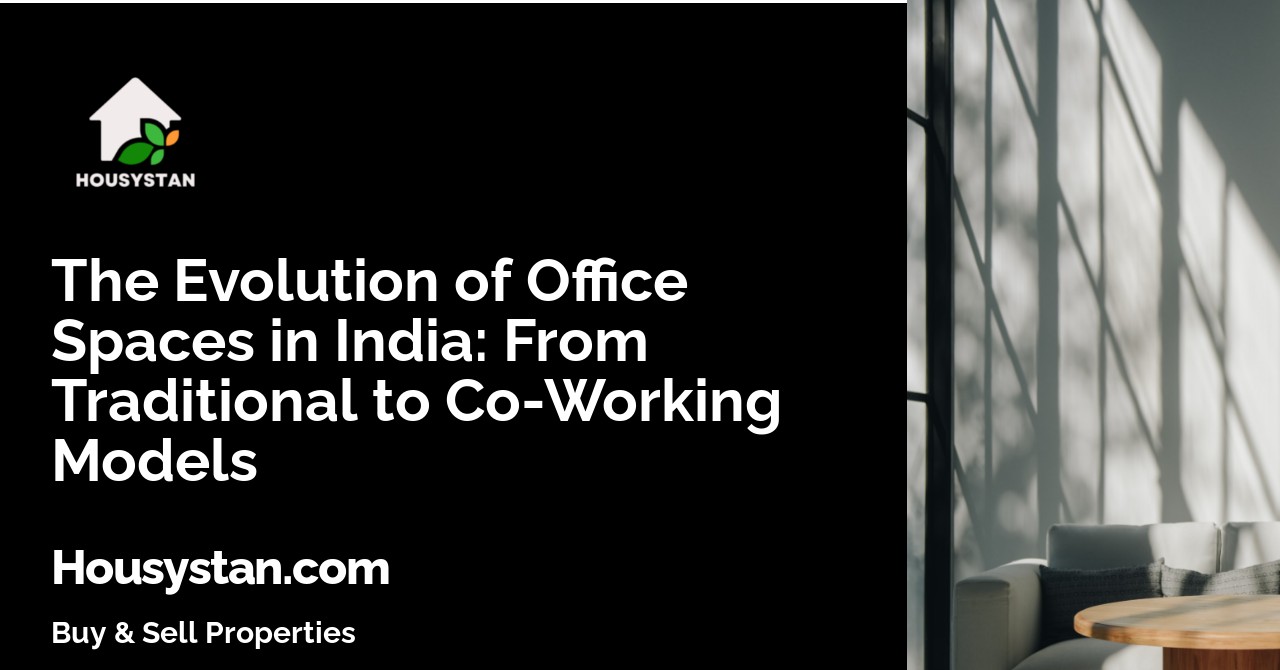The Evolution of Office Spaces in India: From Traditional to Co-Working Models
Read latest blogs and articles from Housystan

The Information mentioned here was last updated on:
29/1/2026The landscape of office spaces in India has experienced a remarkable transformation over the past decade. Traditionally, businesses operated in conventional office setups, often characterized by closed cabins, rigid layouts, and hierarchical seating arrangements. However, as the needs of Indian enterprises have evolved, so too has the demand for dynamic and flexible work environments. This shift reflects broader changes in work culture, technological advancements, and the rise of the digital economy across major Indian cities such as Bengaluru, Mumbai, Delhi, Hyderabad, and Pune.
Today, co-working models are redefining how professionals interact, collaborate, and grow. These innovative spaces offer shared amenities, modern infrastructure, and scalable solutions for startups, freelancers, and established firms alike. Accessibility to high-speed internet, ergonomic furniture, and shared meeting rooms attracts a diverse range of users, from tech entrepreneurs to creative agencies, all seeking a productive and collaborative atmosphere. In metropolitan hubs throughout India, co-working offices have become synonymous with flexibility, cost-efficiency, and networking opportunities.
The evolution towards co-working spaces is driven by several factors unique to the Indian market. Rapid urbanization, increasing real estate costs, and the growing gig economy have made traditional offices less feasible for many businesses. Additionally, the younger workforce in cities like Chennai, Ahmedabad, and Gurugram prioritizes work-life balance and community engagement, influencing organizations to adapt their workspaces accordingly. Co-working hubs cater to these preferences by offering customizable plans, vibrant interiors, and locations near major transit points, making them ideal for companies aiming to attract and retain top talent.
- Verified Tenants/Buyers
- Unlimited Property Listing
- Zero subscription/charges fee
Furthermore, the integration of technology has played a crucial role in this transition. Smart access solutions, cloud-based communication tools, and virtual office services have empowered businesses to operate seamlessly regardless of physical location. This digital transformation is particularly evident in India’s rapidly growing tech corridors, where innovation and agility are essential for success.
In summary, the evolution of office spaces in India illustrates a broader shift towards flexibility, collaboration, and technological integration. As co-working models continue to gain traction in urban centers, they are shaping the future of work and reaffirming India’s position as a global business destination.